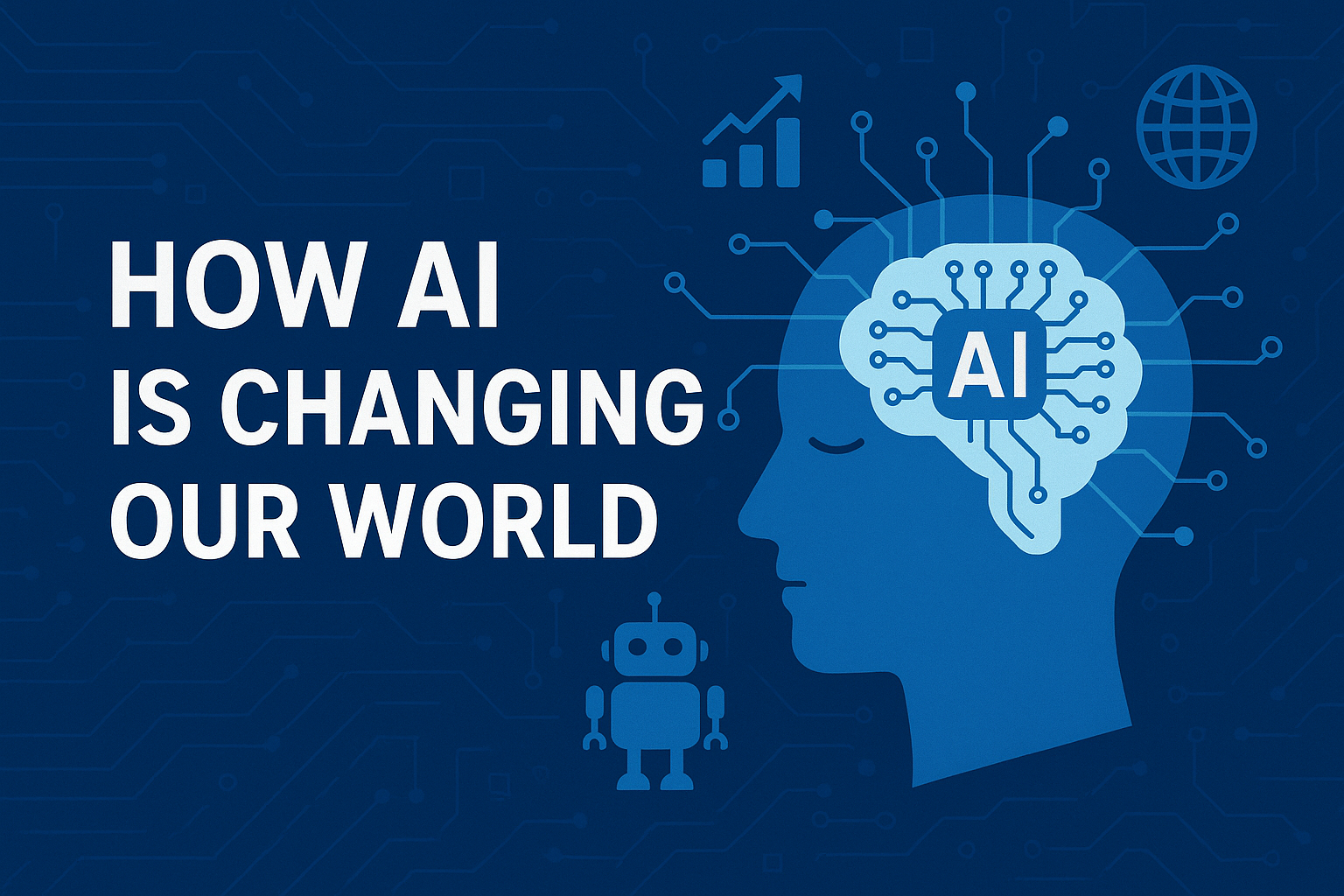Introduction
Artificial Intelligence (AI) is no longer just a futuristic concept from science fiction. It’s here, it’s evolving rapidly, and it’s transforming every aspect of our lives—from the way we work and communicate to how we travel, learn, and even make healthcare decisions. In this blog post, we’ll explore how AI is reshaping our world in powerful and surprising ways.
1. AI in Everyday Life
AI has seamlessly blended into our daily routines. Whether you realize it or not, you interact with AI every day:
- Smart Assistants like Siri, Alexa, and Google Assistant use AI to understand and respond to voice commands.
- Personalized Recommendations on platforms like Netflix, YouTube, and Amazon are powered by machine learning algorithms.
- Navigation Apps like Google Maps use AI to suggest the fastest routes and predict traffic congestion.
2. AI in Healthcare
AI is revolutionizing the healthcare industry by improving diagnosis, treatment, and patient care:
- Early Detection: AI-powered systems can analyze medical images to detect diseases like cancer with high accuracy.
- Drug Discovery: Machine learning accelerates development of new drugs by predicting effectiveness of compounds.
- Virtual Health Assistants: Chatbots help patients monitor symptoms and manage chronic conditions.
3. AI in Business and Work
- Automation of Repetitive Tasks: AI tools handle data entry, customer support, and reporting.
- Predictive Analytics: AI helps businesses forecast sales and make strategic decisions.
- Recruitment: AI systems screen resumes and conduct initial interviews.
4. AI in Education
- Personalized Learning: Platforms adapt to each student’s learning style.
- Automated Grading: Teachers save time with auto-graded quizzes and assignments.
- Language Learning: AI chatbots help students practice real-time conversations.
5. AI in Transportation
- Self-Driving Cars: Companies like Tesla and Waymo test AI-powered autonomous vehicles.
- Traffic Management: AI optimizes traffic lights and reduces congestion.
- Public Transport: Predicts demand and improves scheduling.
6. Ethical Considerations and Challenges
- Privacy: AI systems process vast personal data raising privacy concerns.
- Job Displacement: Automation may replace repetitive job roles.
- Bias: AI can inherit bias from training data, resulting in unfair outcomes.
7. The Future of AI
- General AI: Scientists work on AI with human-like reasoning abilities.
- Space Exploration: AI controls robotic explorers and processes mission data.
- Creative AI: Tools like ChatGPT and DALL·E enable machines to write, draw, and compose music.
Conclusion
Artificial Intelligence is not just changing our world—it’s redefining it. As AI continues to evolve, it will empower us in new ways, unlock new opportunities, and pose new challenges. Embracing AI responsibly will be key to building a better, smarter future for all.
